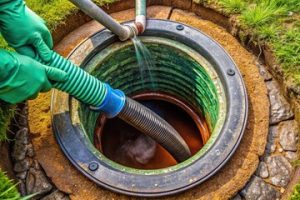
Air conditioning installation is a big investment, but one that can make your home more comfortable and energy-efficient. However, many HVAC companies skip steps or take shortcuts that result in subpar performance and a high risk of breakdowns.
AIR CONDITIONING INSTALLATION MILFORD OH follow a detailed process that enhances system longevity and optimizes cooling performance. Here are the main steps:
Preparation
Before an air conditioning installation begins, a licensed technician conducts a home evaluation. This involves visiting the house and assessing its level of insulation, layout, size, and existing ductwork (if applicable). This information helps determine which cooling system will best suit your needs and budget. It also allows technicians to provide an accurate installation estimate.
The next step is preparing your house for the installation. This includes clearing a path for the team, moving furniture, and covering surfaces with protection to prevent dust. It’s important to clear away anything that might get in the way of the air conditioner installation. In some cases, this could include removing plants and shelves, especially if they’re on the walls or above cabinets. You may want to ask someone to take care of your pets during this time, as well.
If you’re replacing your existing AC unit, the licensed contractors will remove the old unit and set up the new one. The outside unit is usually mounted on a concrete pad, which protects the unit from vibrations and keeps it stable. It’s typically positioned away from intense sunlight to prevent overheating. The team will then connect the new unit to a service line that runs from your house’s inside air handler to the outdoor unit.
Before this can occur, however, the technicians will shut off the electricity and gas to the current unit. If you have a breaker box that’s not up to code or compatible with your new system, the technicians will install a new disconnect. This is required by most manufacturers to maintain warranty coverage for your new air conditioning system.
If you’re using existing ductwork, the licensed contractors will seal and insulate the ducts as needed. They may also modify ducts to improve airflow, such as by adding registers or resizing ducts. They’ll also test the new system by running it for an hour or so and measuring airflow throughout the house to make sure your family is getting adequate cooling. This also includes checking refrigerant levels, which are often a cause of system malfunctions.
Installation
In order to ensure your new air conditioner functions properly, it needs to be installed correctly. This is why it is so important to work with an experienced HVAC contractor. They will follow a structured installation process to ensure your home receives optimal cooling from day one. This process involves many steps, which homeowners should be aware of.
When the installation phase begins, the installers will begin by examining your existing ductwork to see if it is the correct size for your new AC unit. If it is too small, your system will not be able to cool your entire home effectively, and it may overwork itself, leading to premature failure. This is also a good time to evaluate your ducts for leaks, which could be lowering efficiency.
Next, the evaporator unit (also known as an indoor unit) is placed and hooked up to a drain line for condensation drainage, as well as to the coolant lines that will run to and from your outdoor condenser. Then the installers will install the outside cabinet that houses the compressor and condenser coil, as well as the refrigerant and power lines.
Depending on your cooling needs and the type of AC unit you choose, you may also need to upgrade your home’s electrical service to handle the extra load of the new air conditioning system. This is usually done by adding a circuit breaker and sometimes requires permitting.
Before the installation team leaves, they should vacuum the new system and your ductwork to remove any debris or dust that could negatively affect its operation. Additionally, the ducts should be checked to see if they are large enough for the new unit and if they need to be sealed or cleaned.
Once the installation is complete, a technician will test your new system to make sure it works as intended and is cooling your home efficiently. Depending on the results, they may need to adjust the refrigerant levels or perform additional tests. This is a necessary step that some companies skip in order to save money, but it can lead to reduced performance and shorter equipment lifespans.
Commissioning
Once the air conditioning system is connected and activated, a service professional should run several tests to ensure everything is functioning properly. These include checking refrigerant levels, airflow, thermostat operation, and balancing the system so every room receives adequate heating or cooling. They should also educate the homeowner on how to operate and maintain their new system to maximize its performance and lifespan.
This is a necessary step that can be overlooked by less reputable AC installation companies. Skipping this step could result in a system that doesn’t function correctly or meet the manufacturer’s specifications, costing you more money in energy costs and reducing efficiency and comfort.
The commissioning process also includes checking the proper connections, electrical wiring, and overall system functionality. This is why it’s important to hire a licensed and insured HVAC contractor for your installation. Any person handling refrigerant must be individually EPA-certified to avoid tampering with the system’s integrity and exposing you to risk.
During the commissioning process, your contractor should also inspect any ductwork that is being installed or modified to make sure it can handle the load of your new system. This may require enlarging or rerouting ducts to make them more efficient and ensure balanced air distribution throughout the home. It’s also crucial to ensure that any ductwork is properly sealed and insulated to minimize leaks and increase efficiency.
Once everything is tested, the metering and control systems should be set up for optimum performance. This includes setting the proper refrigerant charge, monitoring and controlling the airflow through your ductwork, and ensuring that all parts of the air conditioning system are operating within the manufacturer’s specifications.
It’s also a good idea to have your system inspected annually to keep it running efficiently and prevent any costly repairs in the future. By scheduling regular post-installation inspections, you can help your system stay at its optimal performance and extend its lifespan by up to 40%.
Once the air conditioning installation is complete, your contractor will load up any tools or old equipment and take it away. They will then begin the cleanup process by removing any drop cloths and loading up any remaining material for disposal or recycling. They should also reactivate your circuit breaker and test the air conditioner again to be sure it is ready for use.
Cleanup
Once the new AC is in place, technicians will conduct a thorough cleanup of the work area. They’ll remove the old unit, install new wiring if necessary, and make sure the circuit breaker is properly shut off. They’ll also connect the new refrigerant lines and drainage systems, test all wiring connections and electrical safety checks, and balance your airflow. If desired, they can add other features like a thermostat or air purifiers.
On the inside, they’ll clean the condensate pan and check insulation in non-air-conditioned spaces such as attics or crawl spaces for leaks. They’ll also inspect ductwork for loose or disconnected sections, and ensure that access doors in sheet metal ducts are secured tightly. Finally, they’ll explain how the system works and emphasize routine maintenance to keep the new unit operating as efficiently as possible for years to come.
To make the installation process go more smoothly, it’s a good idea to prepare for the project as much as possible before the service professionals arrive. If you’re concerned about making sure the technicians have enough room to work, remove any boxes, plants, shelves or other objects that could get in the way. For outdoor units, it’s also a good idea to prepare the work area by clearing any debris and bushes around it.
Visit our Professional Services Blogs
Smart Choice Plumbing And Air, Sanitize My Airducts, Bethesda Locksmith, Golden Coast Cleaners, Advanced Concrete Staining, Home Pool Cleaners, Brayhines Septic, Shaka Pool And Spa Cleaning,Mr Clean And Shine, Best Appliance Repair Long Beach, Gulf to Bay Water Remediation, Garage Door San Francisco, Richmond Flooring, Fence Builders Woodlands, Colorado Springs Auto, Fuel Frontlines, Expert 24 Option, Sacramento Roseville Real Estate, SLO Homes, Philadelphia Towing, State Powerwashing, Truck Tires Worldwide, Website Translation, Construction Company Farmington NM, Green Home Los Angeles, Trinity SEO Marketing, Electric Fireplaces, Argos Bookkeeping, Christopherson Drywall,Garage Door Installation, Missouri Personal Injury Lawyer Blog, Alvins Auto Body, Carpet Care Pros, Las Vegas Concrete, Clark Concrete Company, Deck Builders Missour City, Lechleitner Builders, Medical Health Insurance Policy, Royal Siding Windows, Carpet Steam Cleaners Review, Go Greeen Lawn Painting, Oakwood Skate Deck, Texas Home Remodeling And Painting, USA Home Repair Remodeling, Dream Home Remodeling Services, Brent Lawn Homes, Great Ernm Homes, Accelerated Orthodontic, Arctic Cooling And Heating, Baltimore Heating And Airconditioning



